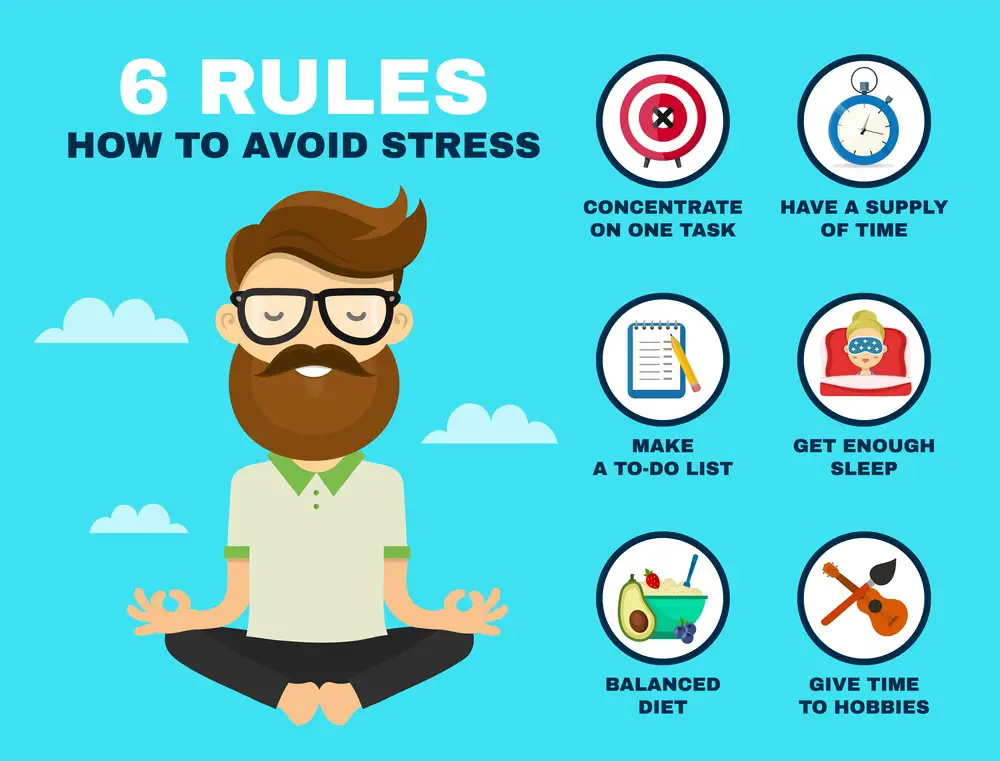As a BetterHelp affiliate, we receive compensation from BetterHelp if you purchase products or services through the links provided
Workplace stress can be detrimental to both employees and employers. It can lead to burnout, decreased productivity, and even physical health problems. However, there are ways to reduce workplace stress and create a more positive and productive work environment. Discover valuable insights on occupational wellness and effective stress management strategies by exploring resources related to workplace stress tips.
One way to reduce workplace stress is to encourage employees to take daily breaks. Short breaks can help employees recharge and refocus, increasing productivity and decreasing stress levels. Another way to reduce workplace stress is to promote open communication and employee collaboration. This can help reduce misunderstandings and conflicts, leading to a more positive work environment.
Reducing workplace stress is essential for both employees and employers. Employers can create a more positive and productive work environment by implementing strategies such as taking breaks and promoting open communication.
 Understanding Workplace Stress
Understanding Workplace Stress
Workplace stress is a common problem that affects many employees. Work stress is defined as the physical and emotional responses that occur when an individual perceives that the demands of their job exceed their ability to cope. This can be caused by various factors, including workload, stressful situations, uncertainty, perfectionism, and burnout.
Work-related stress can lead to negative consequences, such as decreased job performance, absenteeism, and even physical and mental health problems. Therefore, it is essential to understand the causes of workplace stress and how to manage it effectively.
One of the primary causes of work stress is workload. When employees are given too much work to do or unrealistic deadlines, they may feel overwhelmed and stressed. Stressful situations, such as conflicts with coworkers or demanding customers, can also contribute to work-related stress.
Uncertainty is another factor that can cause workplace stress. Employees who are unsure about their job security or the company’s direction may feel anxious and stressed. Perfectionism can also lead to work stress, as employees may feel pressure to perform at an unrealistic level.
Finally, burnout is a common consequence of prolonged work-related stress. Burnout occurs when employees become emotionally exhausted, cynical, and detached from their work.
Understanding the causes of work stress is an important first step in managing it effectively. By identifying and reducing the sources of stress, employees can improve their well-being and job performance. Financial stress can also cause workplace stress, so it can be worthwhile investing in financial advisors for your employees, like Volpefinancialsolutions.com.
 Strategies to Reduce Workplace Stress
Strategies to Reduce Workplace Stress
Workplace stress can have negative effects on employees’ mental and physical health, as well as their productivity. Fortunately, there are several strategies that employers can implement to reduce workplace stress and promote a healthier work environment.
1. Promoting Work-Life Balance
Promoting work-life balance is one of the most effective ways to reduce workplace stress. Employers can do this by offering flexible work schedules, allowing employees to work remotely, and providing paid time off. This allows employees to balance their work and personal lives better, reducing stress and increasing job satisfaction.
2. Improving Communication and Recognition
Communication breakdowns and lack of recognition can be a significant source of workplace stress. Employers can reduce this stress by improving communication channels and recognizing employees for their hard work. This can involve regular employee check-ins, providing constructive feedback, and publicly acknowledging employee achievements. If you’re still struggling, an employment attorney near me might be worth contacting to help resolve long-standing employment issues.
3. Implementing Wellness Programs
Wellness programs can also be effective in reducing workplace stress. These programs can include fitness classes, healthy snacks, and access to fitness trackers. Employers can reduce stress and improve overall wellness by promoting healthy habits and providing employees with the tools to stay healthy.
4. Encouraging Exercise and Healthy Eating
Finally, employers can encourage employees to exercise and eat healthily by offering gym memberships or healthy food options. Exercise and healthy eating have been shown to reduce stress levels and improve overall well-being, so employers must promote these habits. Also, participating in black owned business support can be a great way to transform how people feel, as it’s a meaningful way to give back to our community.
By implementing these strategies, employers can reduce stress at work and improve employees’ overall health and well-being.
- 7 Ideas to Help You Relax and Unwind on a Family Vacation - April 27, 2025
- How Having Cybersecurity Protection Helps You Relax - April 25, 2025
- 8 Reasons Why Spending Time Outside Calms You Down - April 25, 2025
This site contains affiliate links to products. We will receive a commission for purchases made through these links.


 Understanding Workplace Stress
Understanding Workplace Stress Strategies to Reduce Workplace Stress
Strategies to Reduce Workplace Stress
